

Students say goodbye to new friends in the School's last visit to Arnhem Land in 2019. The COVID-19 Pandemic has impacted MGGS's ability to conduct the trip.


Students say goodbye to new friends in the School's last visit to Arnhem Land in 2019. The COVID-19 Pandemic has impacted MGGS's ability to conduct the trip.
Country, Culture and Connections
“Aboriginal and Torres Strait Islander cultures are the oldest, continuous cultures in the world, having existed in Australia for at least 50,000 years. The uniqueness of these cultures and the wisdom and knowledge embedded in them are things to be highly valued by all Victorians.” - Victorian Curriculum Assessment Authority
It is therefore incumbent on all of us to be active learners – to promote a community that celebrates diversity and is inclusive by nature. The Victorian Curriculum Assessment Authority defines this within the learning context for all students from Foundation (Preparatory). The culture is embedded across all learning – Arts, Civics and Citizenship, Design and Digital Technologies, English, Health and Physical Performance, Geography, and History. Learning about and embracing indigenous culture also helps us in our goal of developing empowered and ethical women of action. Extensive knowledge of our Nation’s First People equips our Grammarians with the ability to make a meaningful contribution to the continuous change needed to embrace our Australian history and culture. Our programs enable our students to have a broad vision and focus during their studies and be informed citizens when they move beyond the red brick walls.

Acknowledging, learning and embracing indigenous culture is something our Grammarians, teachers, and staff support. We respect, honour, and appreciate the diversity, culture and lessons we learn from Aboriginal and Torres Strait Island people; it is their presence that truly enriches our community. Influenced by their sense of inclusiveness, respect of individual differences and a genuine love of learning, our Grammarians are open-minded when embracing other cultures.
Indigenous culture is weaved into MGGS in many ways. Since 2006, scholars from indigenous communities have been provided opportunities to learn at the School as part of our Indigenous Scholarship Program. Scholarships provide the opportunity for indigenous students from different parts of Australia to realise their academic potential. The program provides a chance to learn in an inclusive environment; it helps scholars discover and pursue their strengths, interests, and goals. Eight students are currently part of this program, with three – School Captain Lilli, and Boarding House Captain Gracie and Hayley – about to finish Year 12 and become Old Grammarians this year.
Acknowledging, learning and embracing indigenous culture is something our Grammarians, teachers, and staff support. We respect, honour, and appreciate the diversity, culture and lessons we learn from Aboriginal and Torres Strait Island people; it is their presence that truly enriches our community. Influenced by their sense of inclusiveness, respect of individual differences and a genuine love of learning, our Grammarians are open-minded when embracing other cultures.
Indigenous culture is weaved into MGGS in many ways. Since 2006, scholars from indigenous communities have been provided opportunities to learn at the School as part of our Indigenous Scholarship Program. Scholarships provide the opportunity for indigenous students from different parts of Australia to realise their academic potential. The program provides a chance to learn in an inclusive environment; it helps scholars discover and pursue their strengths, interests, and goals. Eight students are currently part of this program, with three – School Captain Lilli, and Boarding House Captain Gracie and Hayley – about to finish Year 12 and become Old Grammarians this year.
Acknowledging, learning and embracing indigenous culture is something our Grammarians, teachers, and staff support. We respect, honour, and appreciate the diversity, culture and lessons we learn from Aboriginal and Torres Strait Island people; it is their presence that truly enriches our community. Influenced by their sense of inclusiveness, respect of individual differences and a genuine love of learning, our Grammarians are open-minded when embracing other cultures.
Indigenous culture is weaved into MGGS in many ways. Since 2006, scholars from indigenous communities have been provided opportunities to learn at the School as part of our Indigenous Scholarship Program. Scholarships provide the opportunity for indigenous students from different parts of Australia to realise their academic potential. The program provides a chance to learn in an inclusive environment; it helps scholars discover and pursue their strengths, interests, and goals. Eight students are currently part of this program, with three – School Captain Lilli, and Boarding House Captain Gracie and Hayley – about to finish Year 12 and become Old Grammarians this year.

Indigenous Student Co-ordinator Sheryle Allan has seen indigenous scholars graduate and leave the School with more confident and stronger voices. She hopes that we have provided them with the opportunities to confidently discover that voice. “We ensure they’re connected with various people and resources as part of a diverse and inclusive approach to their education”, Sheryle says confirming that “this helps to further their voice in whatever they wish to pursue”.
Having an Indigenous Scholars Program and Grammarians at all levels learning about Aboriginal and Torres Strait Island culture is important to MGGS. Sheryle believes it’s crucial to ensure our vast history as a country doesn’t remain a mystery and that our Grammarians have an honest and balanced understanding of all people who live in Australia. Not connecting with indigenous culture and knowledge leaves us with a skewed view, and only part of the story; leaving the history of this country to be viewed through a contorted lens. She believes that this is an exchange of knowledge and experience: within a supportive community, the exchange of learning is meaningful – it is honest and authentic and is built on mutual trust and respect.
Indigenous Student Co-ordinator Sheryle Allan has seen indigenous scholars graduate and leave the School with more confident and stronger voices. She hopes that we have provided them with the opportunities to confidently discover that voice. “We ensure they’re connected with various people and resources as part of a diverse and inclusive approach to their education”, Sheryle says confirming that “this helps to further their voice in whatever they wish to pursue”.
Having an Indigenous Scholars Program and Grammarians at all levels learning about Aboriginal and Torres Strait Island culture is important to MGGS. Sheryle believes it’s crucial to ensure our vast history as a country doesn’t remain a mystery and that our Grammarians have an honest and balanced understanding of all people who live in Australia. Not connecting with indigenous culture and knowledge leaves us with a skewed view, and only part of the story; leaving the history of this country to be viewed through a contorted lens. She believes that this is an exchange of knowledge and experience: within a supportive community, the exchange of learning is meaningful – it is honest and authentic and is built on mutual trust and respect.
Indigenous Student Co-ordinator Sheryle Allan has seen indigenous scholars graduate and leave the School with more confident and stronger voices. She hopes that we have provided them with the opportunities to confidently discover that voice. “We ensure they’re connected with various people and resources as part of a diverse and inclusive approach to their education”, Sheryle says confirming that “this helps to further their voice in whatever they wish to pursue”.
Having an Indigenous Scholars Program and Grammarians at all levels learning about Aboriginal and Torres Strait Island culture is important to MGGS. Sheryle believes it’s crucial to ensure our vast history as a country doesn’t remain a mystery and that our Grammarians have an honest and balanced understanding of all people who live in Australia. Not connecting with indigenous culture and knowledge leaves us with a skewed view, and only part of the story; leaving the history of this country to be viewed through a contorted lens. She believes that this is an exchange of knowledge and experience: within a supportive community, the exchange of learning is meaningful – it is honest and authentic and is built on mutual trust and respect.


As part of the curriculum, Grammarians have also experienced indigenous communities first-hand. Fundamental to understanding is learning from our First Nations people. We have had incursions where artists have visited teaching ways of working, symbolism in the visual language of specific groups, language variation, and storytelling through dance. Connections have been formed from artistic communities such as Bangarra Dance Theatre Group. The Koorie Heritage Trust, Ian Potter Centre: NGV Australia and Melbourne Museum also teach our Grammarians about First Nations Peoples’ history through different experiences. Indigenous Australians such as 2019 Artist in Residence Marrnyula Mununggurr and author Boori Monty Pryor have mesmerised our students with artwork and stories. Chefs from Indigenous Restaurant Charcoal Lane have shared their knowledge of traditional first nations cuisine by running cooking workshops with our students. We have learned from local Wurundjeri people in the areas of science and civics in our own backyard at the Royal Botanic Gardens to give our Grammarians a deep appreciation for Victorian Indigenous Culture. We have learned further afield through trips to Northern and Central Australia, as well as to Arnhem Land where we have connected with the Yolngu people.
The Arnhem Land Journey, which has run since 2017, is now firmly embedded in the School’s calendar. It is one our Grammarians look forward to and remember fondly. It is an experience that opens eyes on the ways of others – it changes them forever.
As part of the curriculum, Grammarians have also experienced indigenous communities first-hand. Fundamental to understanding is learning from our First Nations people. We have had incursions where artists have visited teaching ways of working, symbolism in the visual language of specific groups, language variation, and storytelling through dance. Connections have been formed from artistic communities such as Bangarra Dance Theatre Group. The Koorie Heritage Trust, Ian Potter Centre: NGV Australia and Melbourne Museum also teach our Grammarians about First Nations Peoples’ history through different experiences. Indigenous Australians such as 2019 Artist in Residence Marrnyula Mununggurr and author Boori Monty Pryor have mesmerised our students with artwork and stories. Chefs from Indigenous Restaurant Charcoal Lane have shared their knowledge of traditional first nations cuisine by running cooking workshops with our students. We have learned from local Wurundjeri people in the areas of science and civics in our own backyard at the Royal Botanic Gardens to give our Grammarians a deep appreciation for Victorian Indigenous Culture. We have learned further afield through trips to Northern and Central Australia, as well as to Arnhem Land where we have connected with the Yolngu people.
The Arnhem Land Journey, which has run since 2017, is now firmly embedded in the School’s calendar. It is one our Grammarians look forward to and remember fondly. It is an experience that opens eyes on the ways of others – it changes them forever.
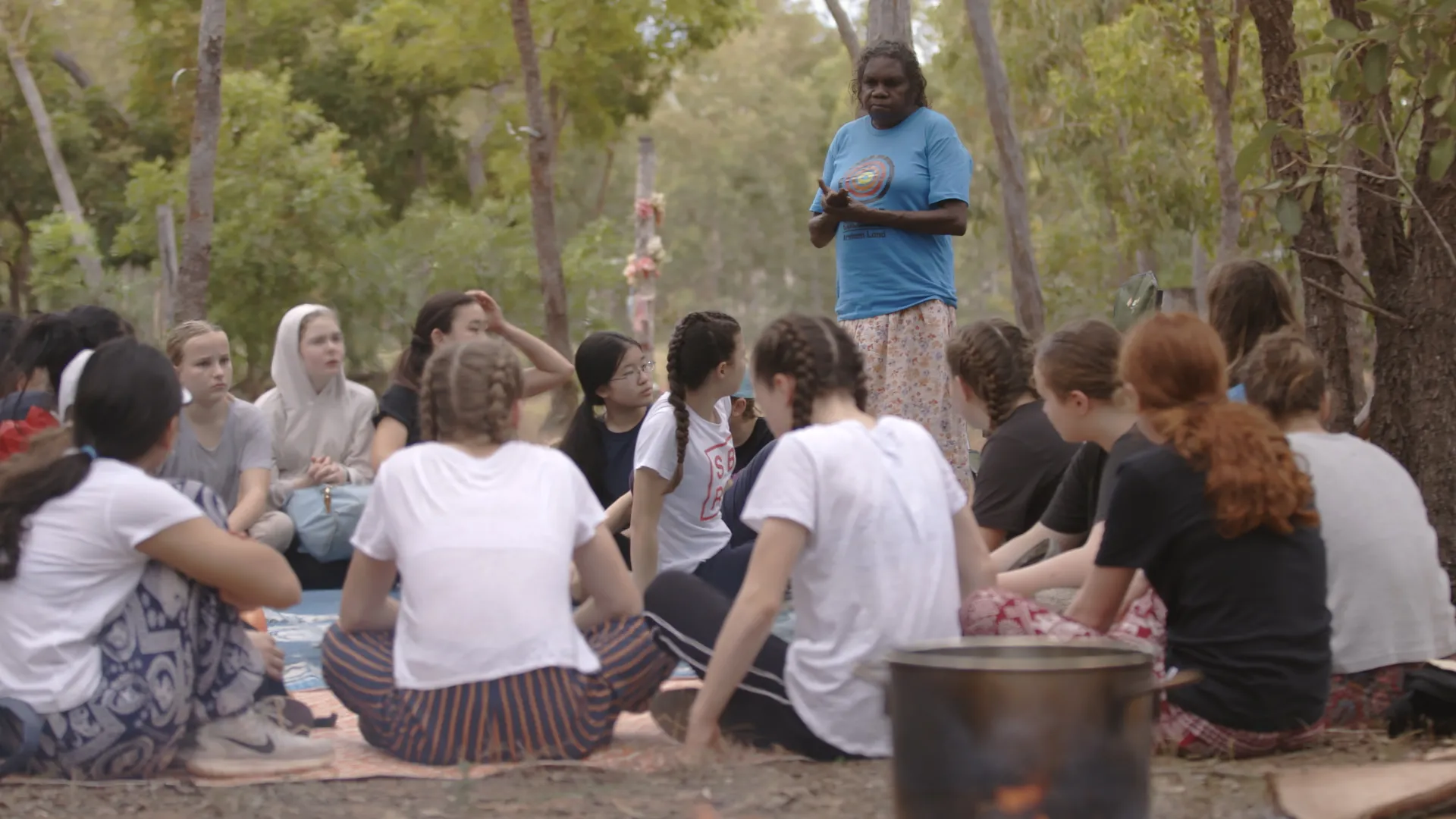

Grammarians listen to a Yolngu elder.



Grammarians listen to a Yolngu elder.
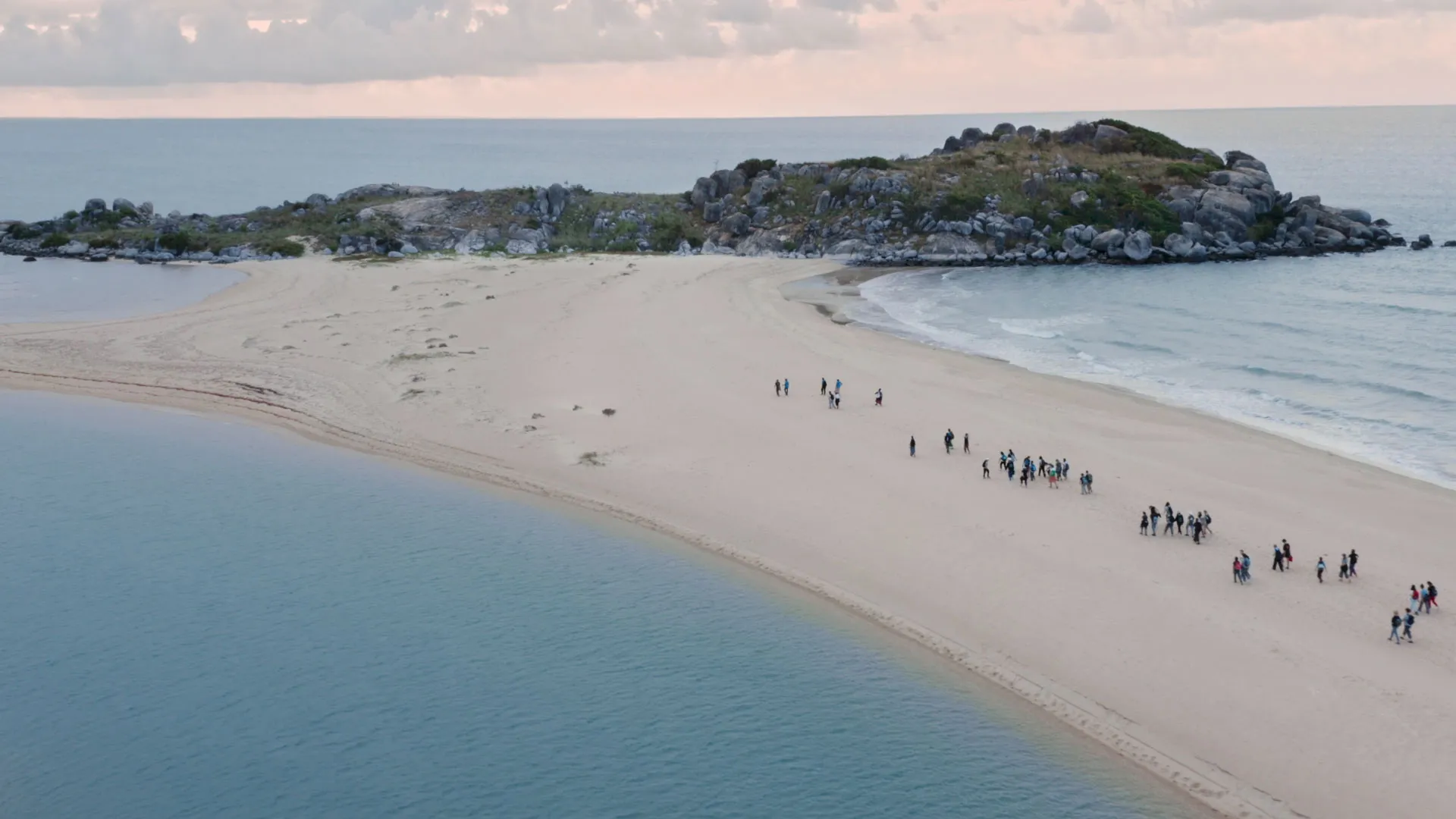

Students trek through Arnhem Land.
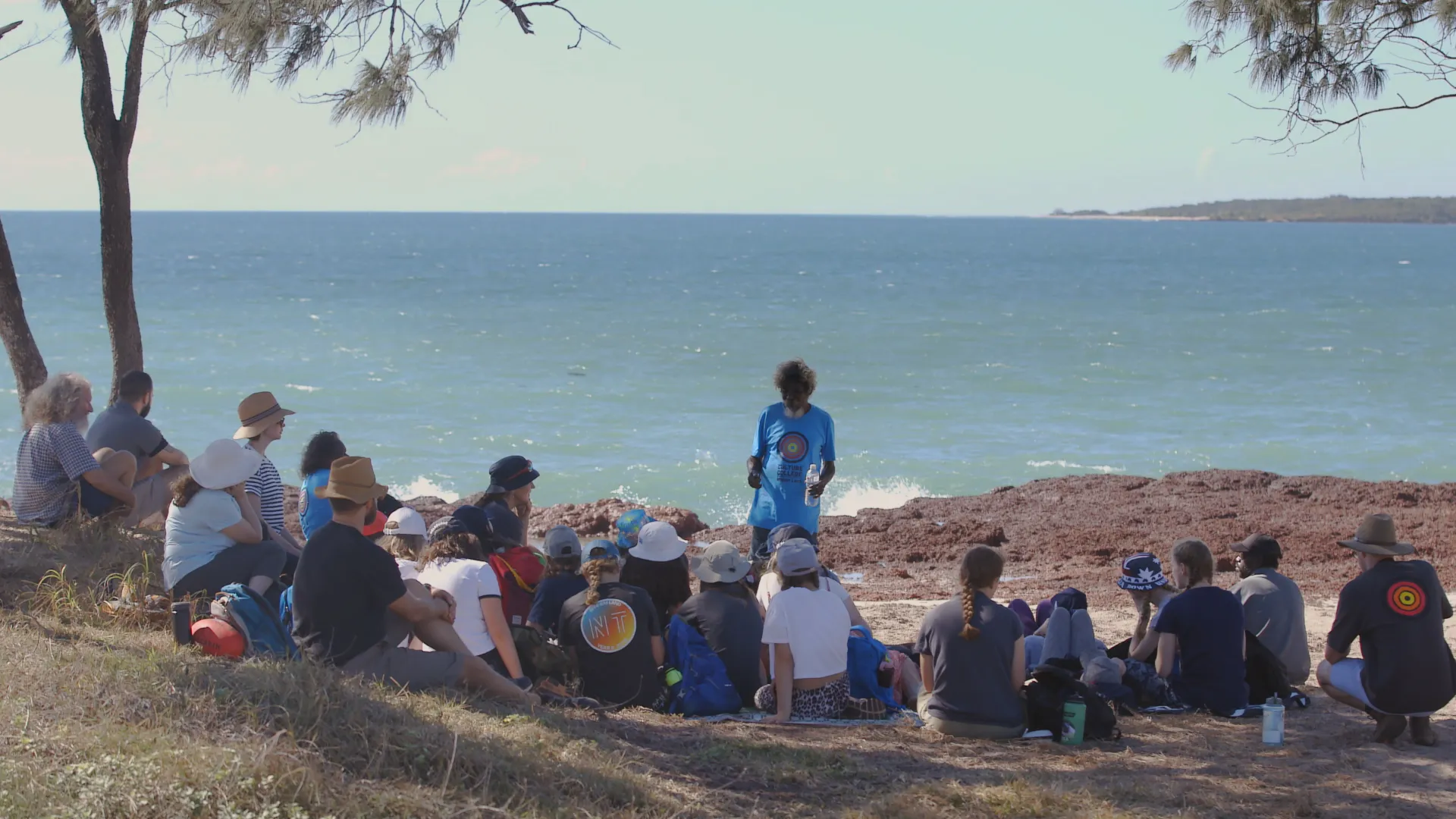

Students enjoy a lesson in picturesque Arnhem Land.
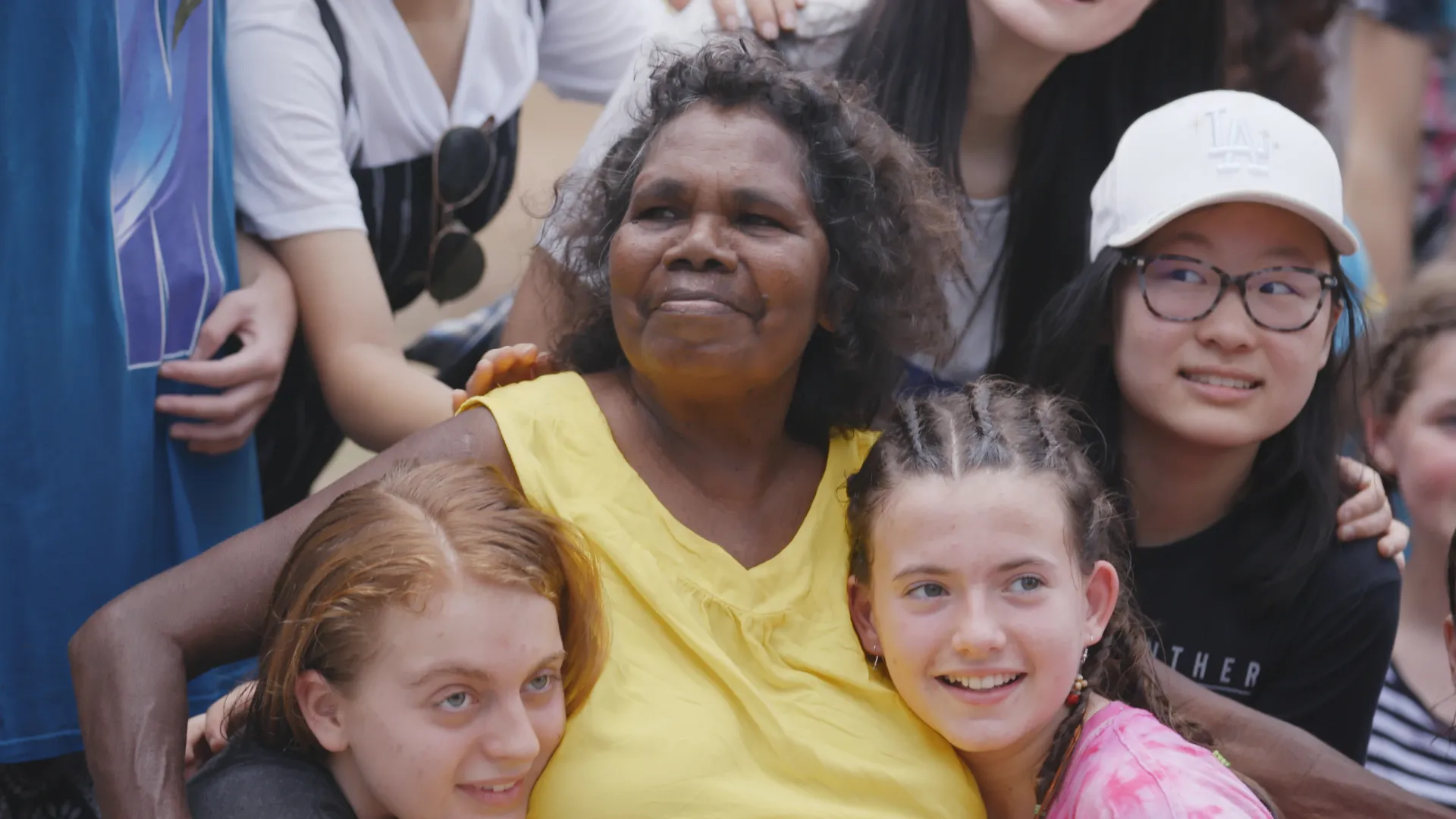

Plenty of hugs are shared at the end of an Arnhem Land Journey.


Grammarians listen to a Yolngu elder.


Students trek through Arnhem Land.


Students enjoy a lesson in picturesque Arnhem Land.


Plenty of hugs are shared at the end of an Arnhem Land Journey.
On that journey, students spend a week immersed with the Yolngu people in Gumatj Country in north-east Arnhem Land, near Nhulunbuy. They camp at the Gulkula site, which is used for the annual Garma Festival. The ceremonial site is the base for Culture College, which runs a cultural exchange program in Arnhem Land. MGGS was one of the first to participate in the program, leading the way for other Victorian schools. The past two years the School has been unable to conduct the trip due to the coronavirus pandemic. The Arnhem Land Journey provides our students with the opportunity to learn about an unbroken indigenous culture through various activities and experiences.
Year 8 and Arnhem Land Journey Co-ordinator Kylie Colquhoun said the camp has a multitude of positive impacts and allows students and staff to stop, embrace what the trip is about and put things in perspective. The enriching and immersive experience is a rare opportunity. Because of the trip, our Grammarians come back thinking differently; they are left with lasting memories and sometimes have new ideas and goals they want to pursue. Many emerge from the learning experience driven to help and are more aware of what needs to be done, all because of sitting down on country and learning about a different culture – of engaging with a real experience and seeing things first hand. The School’s values of compassion, courage, self-discipline and integrity also play a major part in the trip. The students see tangible evidence of how these shared values are present in everything they do.
On that journey, students spend a week immersed with the Yolngu people in Gumatj Country in north-east Arnhem Land, near Nhulunbuy. They camp at the Gulkula site, which is used for the annual Garma Festival. The ceremonial site is the base for Culture College, which runs a cultural exchange program in Arnhem Land. MGGS was one of the first to participate in the program, leading the way for other Victorian schools. The past two years the School has been unable to conduct the trip due to the coronavirus pandemic. The Arnhem Land Journey provides our students with the opportunity to learn about an unbroken indigenous culture through various activities and experiences.
Year 8 and Arnhem Land Journey Co-ordinator Kylie Colquhoun said the camp has a multitude of positive impacts and allows students and staff to stop, embrace what the trip is about and put things in perspective. The enriching and immersive experience is a rare opportunity. Because of the trip, our Grammarians come back thinking differently; they are left with lasting memories and sometimes have new ideas and goals they want to pursue. Many emerge from the learning experience driven to help and are more aware of what needs to be done, all because of sitting down on country and learning about a different culture – of engaging with a real experience and seeing things first hand. The School’s values of compassion, courage, self-discipline and integrity also play a major part in the trip. The students see tangible evidence of how these shared values are present in everything they do.
On that journey, students spend a week immersed with the Yolngu people in Gumatj Country in north-east Arnhem Land, near Nhulunbuy. They camp at the Gulkula site, which is used for the annual Garma Festival. The ceremonial site is the base for Culture College, which runs a cultural exchange program in Arnhem Land. MGGS was one of the first to participate in the program, leading the way for other Victorian schools. The past two years the School has been unable to conduct the trip due to the coronavirus pandemic. The Arnhem Land Journey provides our students with the opportunity to learn about an unbroken indigenous culture through various activities and experiences.
Year 8 and Arnhem Land Journey Co-ordinator Kylie Colquhoun said the camp has a multitude of positive impacts and allows students and staff to stop, embrace what the trip is about and put things in perspective. The enriching and immersive experience is a rare opportunity. Because of the trip, our Grammarians come back thinking differently; they are left with lasting memories and sometimes have new ideas and goals they want to pursue. Many emerge from the learning experience driven to help and are more aware of what needs to be done, all because of sitting down on country and learning about a different culture – of engaging with a real experience and seeing things first hand. The School’s values of compassion, courage, self-discipline and integrity also play a major part in the trip. The students see tangible evidence of how these shared values are present in everything they do.
.JPG)
.JPG)
Dr Toni Meath and Sheryle Allan meeting with our Indigenous Scholars.

.JPG)
.JPG)
Dr Toni Meath and Sheryle Allan meeting with our Indigenous Scholars.
.JPG)
.JPG)
Dr Toni Meath and Sheryle Allan meeting with our Indigenous Scholars.
The School’s ongoing commitment to the trip is a source of pride for Kylie. She believes it is the beginning of positive change that comes as a result of educating our Grammarians about our first Australians; it breaks down barriers so our Grammarians can enact change through first-hand knowledge and through even the simplest actions. “Our Grammarians have the capacity to do something amazing – and some of them will. You just need one or two of them to act to start making a difference.”
Old Grammarians who embraced and learned about indigenous culture while studying are already utilising their knowledge across Australia. The School is extremely proud of some who have headed north to return to places like Arnhem Land, while others, such as OG Chloe Abbott, have found work with Children’s Ground or help indigenous communities in other ways like Liv Vizard who is teaching in Tennant Creek.
The School’s ongoing commitment to the trip is a source of pride for Kylie. She believes it is the beginning of positive change that comes as a result of educating our Grammarians about our first Australians; it breaks down barriers so our Grammarians can enact change through first-hand knowledge and through even the simplest actions. “Our Grammarians have the capacity to do something amazing – and some of them will. You just need one or two of them to act to start making a difference.”
Old Grammarians who embraced and learned about indigenous culture while studying are already utilising their knowledge across Australia. The School is extremely proud of some who have headed north to return to places like Arnhem Land, while others, such as OG Chloe Abbott, have found work with Children’s Ground or help indigenous communities in other ways like Liv Vizard who is teaching in Tennant Creek.
The School’s ongoing commitment to the trip is a source of pride for Kylie. She believes it is the beginning of positive change that comes as a result of educating our Grammarians about our first Australians; it breaks down barriers so our Grammarians can enact change through first-hand knowledge and through even the simplest actions. “Our Grammarians have the capacity to do something amazing – and some of them will. You just need one or two of them to act to start making a difference.”
Old Grammarians who embraced and learned about indigenous culture while studying are already utilising their knowledge across Australia. The School is extremely proud of some who have headed north to return to places like Arnhem Land, while others, such as OG Chloe Abbott, have found work with Children’s Ground or help indigenous communities in other ways like Liv Vizard who is teaching in Tennant Creek.

Under the leadership of Dr Toni E Meath, the School remains committed to embedding indigenous culture across all year levels. The important element that we foster is engagement. Taking time away from factual learning from books, this is about experiential learning. The next step for MGGS is to build connections in our home state of Victoria, starting with a Year 8 trip to the Grampians in 2022, which will include cultural education. This camp is designed to introduce our students to Indigenous themes will have a first nations focus in order to prepare our students for the Arnhem Land Journey, which will become a Year 9 experience from 2022.
For further information regarding our Indigenous Scholars Program contact development@mggs.vic.edu.au
Under the leadership of Dr Toni E Meath, the School remains committed to embedding indigenous culture across all year levels. The important element that we foster is engagement. Taking time away from factual learning from books, this is about experiential learning. The next step for MGGS is to build connections in our home state of Victoria, starting with a Year 8 trip to the Grampians in 2022, which will include cultural education. This camp is designed to introduce our students to Indigenous themes will have a first nations focus in order to prepare our students for the Arnhem Land Journey, which will become a Year 9 experience from 2022.
For further information regarding our Indigenous Scholars Program contact development@mggs.vic.edu.au
Under the leadership of Dr Toni E Meath, the School remains committed to embedding indigenous culture across all year levels. The important element that we foster is engagement. Taking time away from factual learning from books, this is about experiential learning. The next step for MGGS is to build connections in our home state of Victoria, starting with a Year 8 trip to the Grampians in 2022, which will include cultural education. This camp is designed to introduce our students to Indigenous themes will have a first nations focus in order to prepare our students for the Arnhem Land Journey, which will become a Year 9 experience from 2022.
For further information regarding our Indigenous Scholars Program contact development@mggs.vic.edu.au








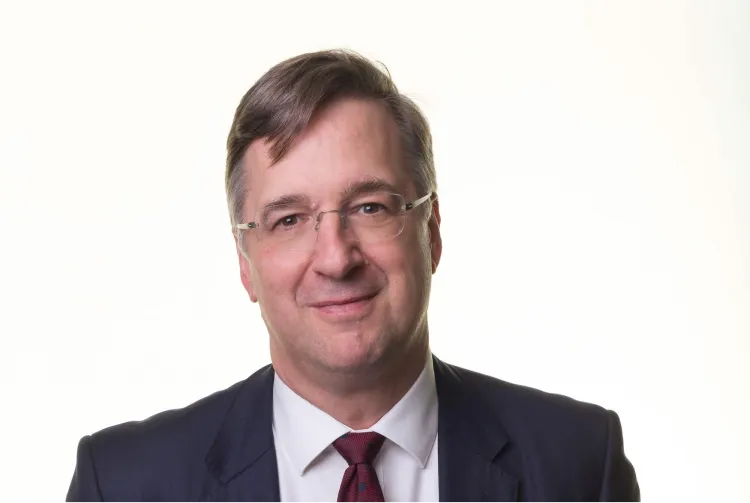
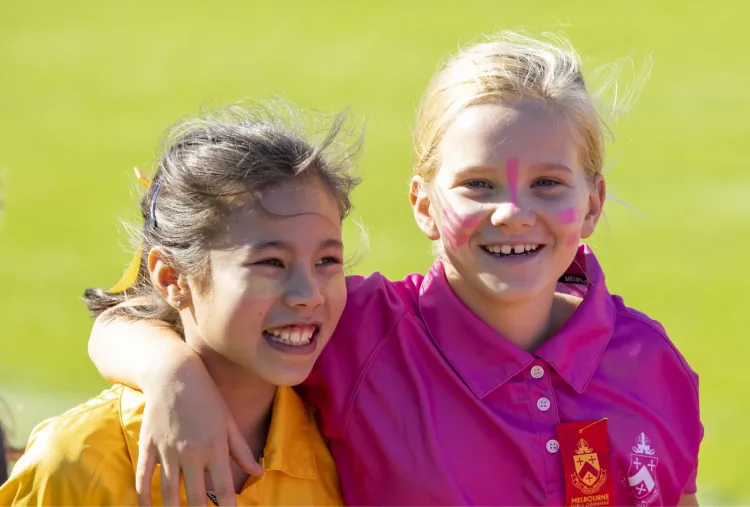
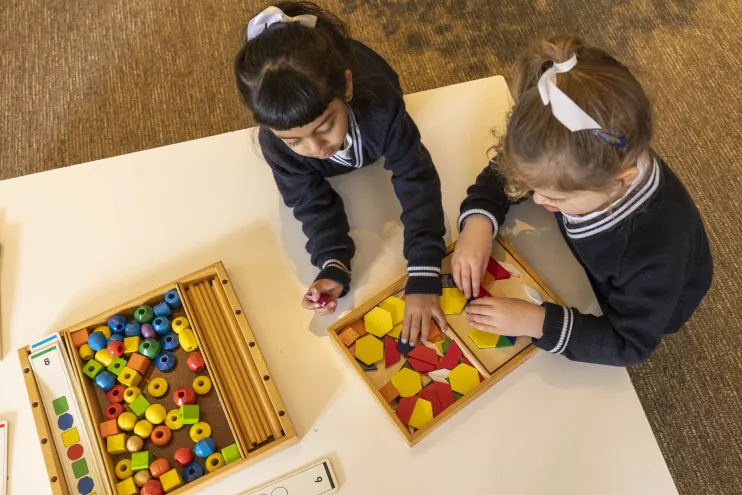
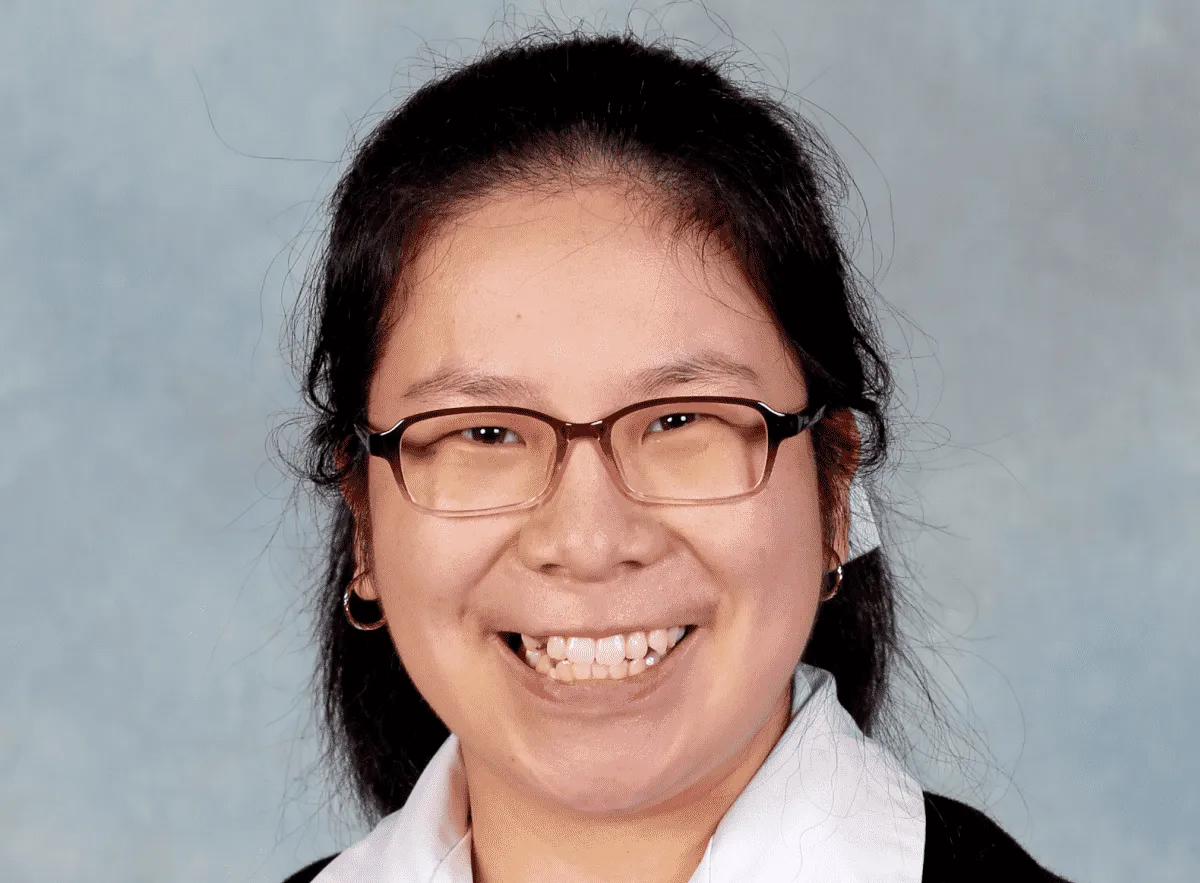
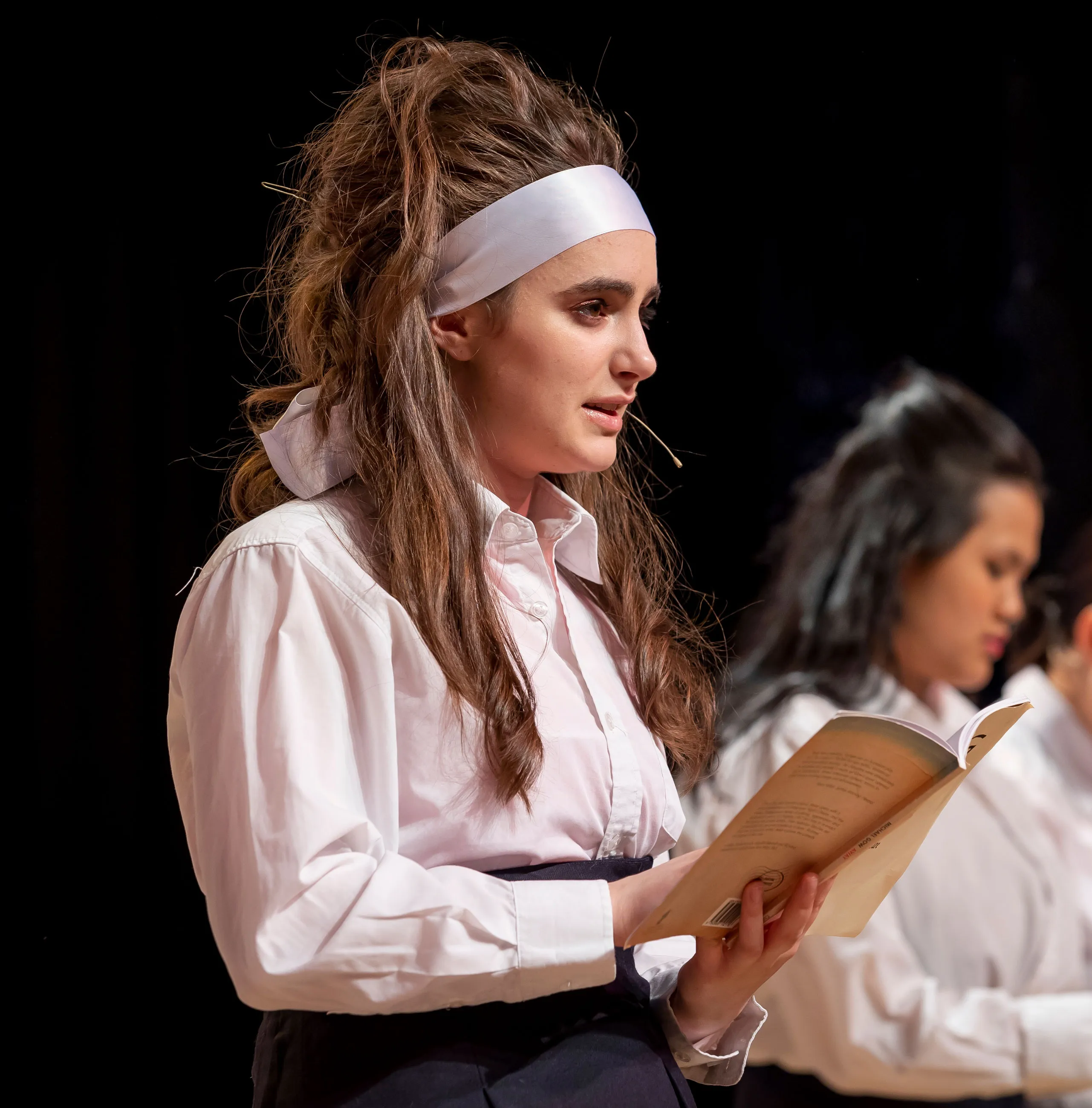
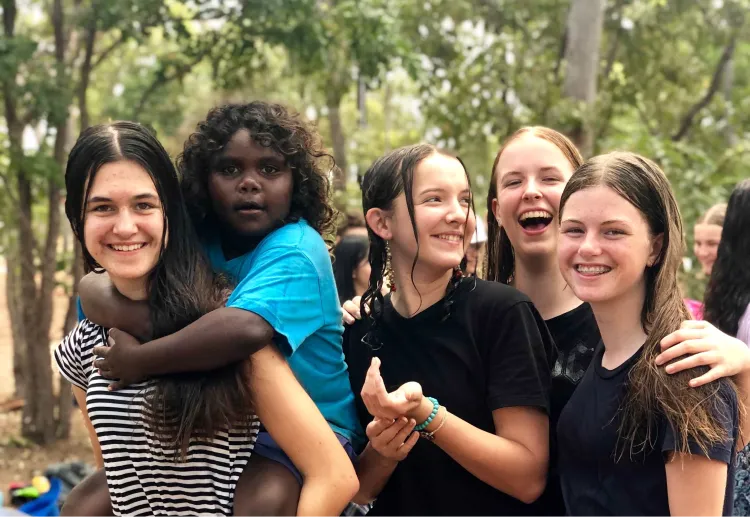
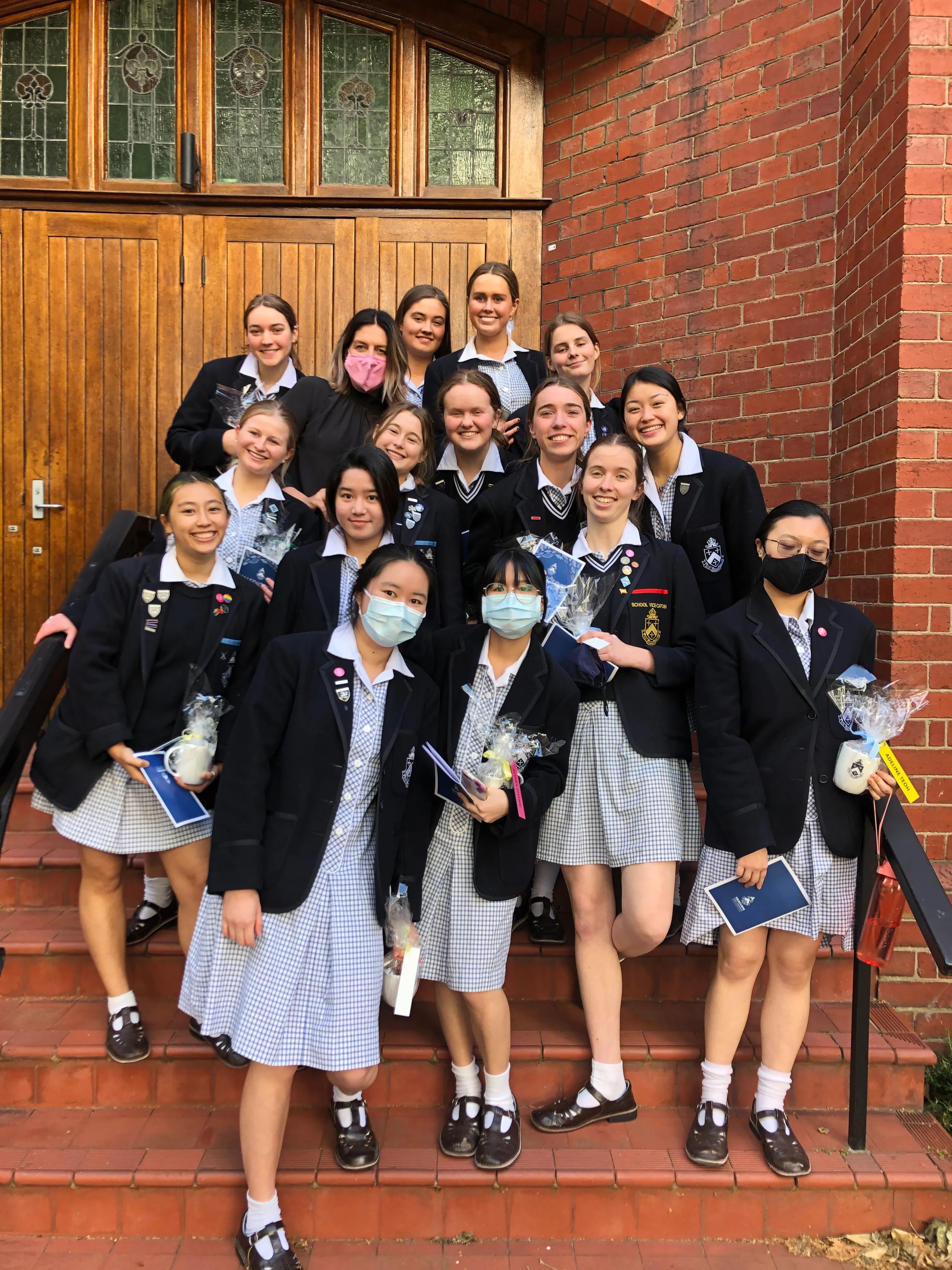

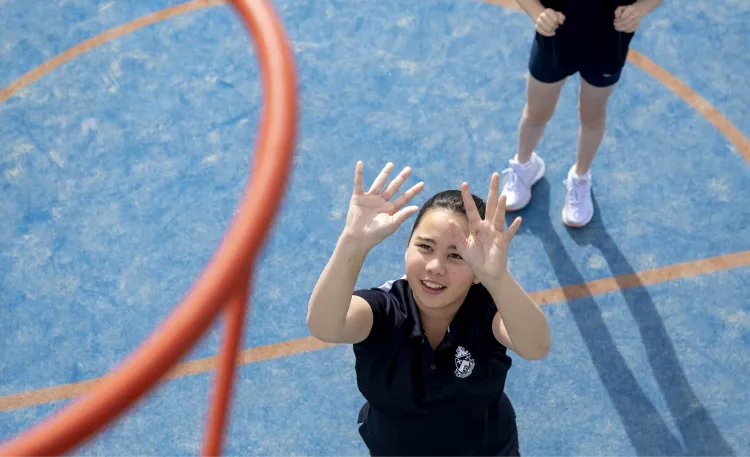
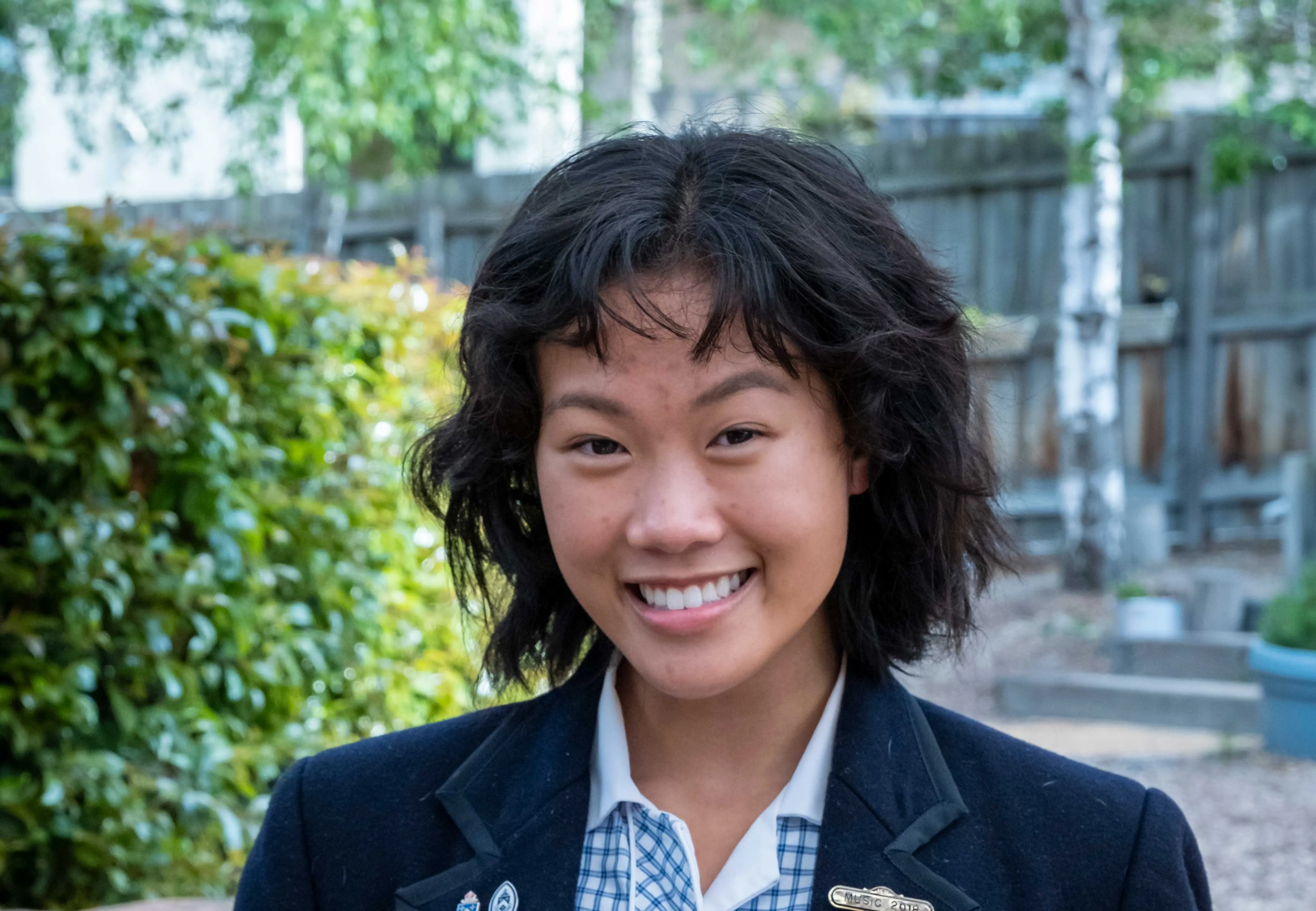
_crop.webp)


